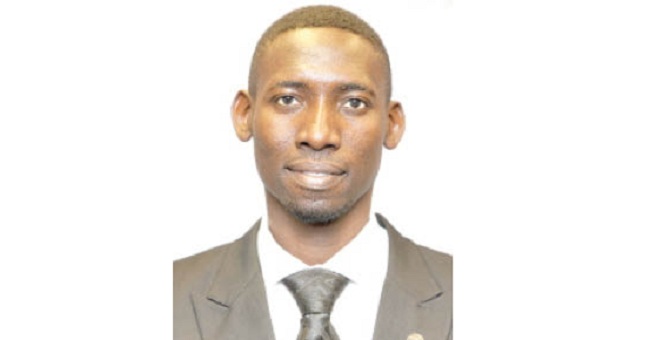

Segun Adeyemo, a doctoral student at Mississippi State University, has been an advocate of sustainable forest management. In this interview with PAUL OMOROGBE, he gives his take on reforestation efforts in Nigeria and what professionals in the industry can do to provide better results.
What do you think about the success or failure of afforestation and reforestation in Nigeria?

Based on my forestry education and work experiences in Nigeria, I believe the fortune of the country’s afforestation and reforestation efforts has been mixed due to a complex set of challenges:
First and foremost, the security situation in certain regions poses a major barrier. In areas impacted by insurgency, banditry or communal clashes, implementing tree planting and sustainable forest management becomes extremely difficult and dangerous. Insecurity prevents government, NGOs and communities from accessing forested areas, deters investment, and discourages local participation. Forests harbouring criminal elements may even be cleared by security forces, reversing reforestation gains. During my studies at the University of Ibadan, there were times when it was unsafe for our forestry students and researchers to conduct fieldwork due to security risks, hampering our ability to monitor and manage projects.
Overcoming this requires integrating peacebuilding with environmental initiatives. Community-based forest management that builds trust, addresses grievances and creates alternative livelihoods for youth can help reduce conflict. Economic incentives for communities to protect rather than degrade forests are key, supported by strong local institutions, land tenure security and equitable benefit-sharing. Government must prioritise the safety of forestry officials and projects in vulnerable areas, strengthening coordination between environmental and security agencies.
Beyond insecurity, the impacts of climate change add urgency to the need for effective reforestation in Nigeria. As temperatures rise and rainfall patterns shift, the country faces growing risks of desertification, biodiversity loss, and reduced agricultural productivity. Restoring and expanding forest cover can help mitigate these impacts by sequestering carbon, regulating water flows, reducing soil erosion and providing resilient ecosystem services. However, climate change also makes tree planting more challenging, requiring careful selection of climate-adapted species and consideration of future ecological conditions.
At the same time, Nigeria’s forest policies and legal frameworks need revamping to curb rampant illegal logging and create an enabling environment for sustainable forest management. Many of the country’s forest laws are outdated and poorly enforced, failing to incentivize good practices or penalize offenders. Weak governance and corruption have allowed illegal felling to proliferate, decimating valuable timber species and degrading forest habitats. Addressing this requires strengthening institutions, increasing transparency, updating regulations, and improving monitoring and enforcement capacities. The forestry sector also needs reformed fiscal policies and market instruments that encourage legal and sustainable wood production while discouraging illicit activities.
Despite the difficulties, promising opportunities exist. During my internship at the Forestry Research Institute of Nigeria, I witnessed how optimised silvicultural techniques increased productivity in agroforestry plantations by 30%. Climate-smart and community-based forest management, public-private partnerships, and innovative financing like payments for ecosystem services hold potential. Integrating trees into farming systems and enabling communities to economically benefit from sustainable timber and non-timber forest products can motivate tree planting.
Ultimately, realizing Nigeria’s reforestation ambitions in a changing climate depends on tackling the underlying drivers of insecurity, curbing illegal logging, modernizing forest policies, and unlocking the full potential of sustainable forest management for climate resilience, biodiversity conservation, and inclusive green growth.
Researchers in a study published in ‘Nature Ecology & Evolution’ last month concluded that without attention to equity, there are risks for harmful or maladaptive actions that will impact human health and well-being and exacerbate the vulnerability of marginalised populations. This, in turn, will undermine joint policy goals for climate, conservation, and sustainable development. What’s your opinion about this?
The study published in ‘Nature Ecology & Evolution’ raises a critical point about the importance of equity in climate change adaptation, conservation, and sustainable development efforts. I strongly agree with the researchers’ assertion that without deliberate attention to equity, well-intentioned actions can inadvertently harm vulnerable communities and undermine the very goals they seek to achieve.
In the context of afforestation and reforestation in Nigeria, this insight is particularly relevant. If tree planting initiatives are not designed and implemented with the full participation and benefit of local communities, they risk exacerbating existing inequalities and conflicts. For example, if reforestation projects prioritise carbon sequestration over the livelihood needs and land rights of indigenous peoples and small-scale farmers, they may lead to land grabbing, displacement, and loss of access to essential resources. This can fuel resentment, resistance, and ultimately, project failure.
By adopting a rights-based and people-centered approach to forest restoration, Nigeria can ensure that the transition to a low-carbon and nature-positive future is just and equitable.
We have lost about 80 percent of our rainforest to deforestation. Who is to blame for the crisis Nigerian forests are facing?
The crisis facing Nigerian forests is complex and multifaceted with many contributing factors and actors. It’s important to recognise that the blame doesn’t lie with any single group or institution, but rather with a systemic failure to prioritise sustainable forest management and conservation.
The government needs to strengthen forest governance, enforce laws, and provide adequate resources for conservation and sustainable management. The private sector needs to adopt more responsible and transparent practices and be held accountable for their impacts on forests. Local communities need to be empowered and supported to manage their forest resources sustainably and benefit from their conservation. Consumers need to be more aware of the environmental and social impacts of their purchasing decisions and demand certified sustainable products. The international community needs to provide technical and financial support for forest conservation in Nigeria, as well as strengthen mechanisms to combat illegal logging and deforestation.
Only by working together and taking collective responsibility can we hope to turn the tide on deforestation in Nigeria and protect the country’s invaluable forest resources for generations to come.
Do you think professionals like you have done enough in terms of going beyond research in the ivory tower to taking real action that makes a difference on the ground?
You raise a very important and challenging question about the role of forestry professionals and academics in addressing the deforestation crisis in Nigeria. As someone who has studied and worked in this field, I have to admit that we have not always done enough to translate our research and knowledge into practical actions that make a real difference on the ground.
However, I am proud of the work that my colleagues and I have been doing to bridge this gap between research and action. In my collaboration with Prof. Ayodeji Omole at the University of Ibadan, we have focused on several key areas that have the potential to make a tangible impact on forest management practices in Nigeria.
One of our main areas of research has been on improving harvesting efficiency and reducing waste in timber operations. Through our studies, we have demonstrated how the adoption of reduced impact logging techniques can significantly decrease residual stand damage compared to the conventional harvesting systems commonly used in Nigeria. By advocating for these more sustainable practices, we hope to not only conserve forest resources but also improve the long-term economic viability of the timber industry.
Another important finding from our work has been the identification of how frequent replacement of wood in construction projects contributes to increased demand and pressure on our forests. By quantifying this impact and raising awareness among policymakers and practitioners, we aim to promote the use of more durable and sustainable building materials, as well as encourage the recycling and reuse of wood products.
In addition to these applied research projects, we have also been working to expand the range of species used in the timber and pulp and paper industries. With many of the traditional commercial species becoming increasingly scarce due to overexploitation, it is crucial to identify and promote the utilisation of lesser-used species that can provide viable alternatives. Our work on assessing the properties and potential applications of these species is helping to diversify the forest products sector and reduce the strain on endangered tree populations.
Currently, I am excited to be collaborating with a team of researchers on a cutting-edge project that uses advanced machine learning algorithms to identify suitable habitats for mahogany species in West Africa. By mapping out these areas and understanding the key environmental drivers that influence their distribution, we can inform more targeted and effective conservation and restoration efforts. This work is particularly timely and relevant given the threats posed by climate change to the long-term survival of these valuable timber species.
While I am proud of these contributions, I also recognise that there is still much more work to be done to turn the tide on deforestation in Nigeria. We need to continue to push the boundaries of our research, but also find ways to more effectively communicate our findings and engage with the broader community of stakeholders involved in forest management.
As forestry professionals, we have a unique set of skills and knowledge that can make a real difference in the fight against deforestation. But we must be willing to step out of our comfort zones, to listen and learn from others, and to take bold and decisive action in the face of this complex and pressing challenge. The future of Nigeria’s forests, and the well-being of the countless communities and species that depend on them, demands nothing less from us. It is a responsibility that I take seriously, and one that drives me to continue pushing forward in my research and engagement efforts.
Read Also: Democracy has come to stay in Nigeria — Aiyedatiwa








